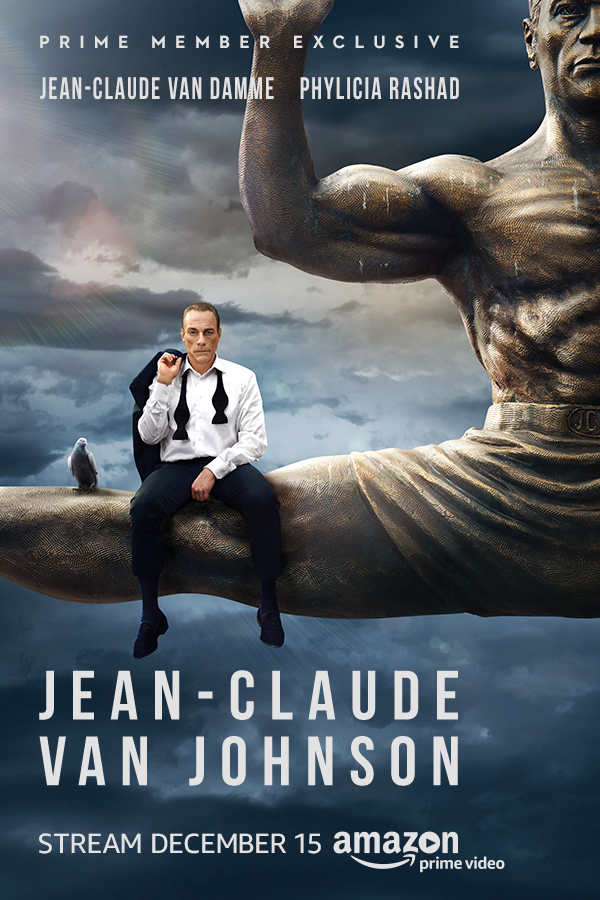PETER ATENCIO does it all. Film. Television. Commercials. Video Art. An Emmy-winning director and producer, Atencio is best known for his work as director and executive producer of the Comedy Central hit “Key & Peele”, plus his breakout feature for New Line Cinema, “Keanu”. Turn on the television or hit the web and it’s almost impossible not to see some of his handiwork, be it on Comedy Central, Adult Swim, MTV, “Funny Or Die”, or with commercial brands like Pepsi and Hyatt. But now, Peter brings his more than a decade of talent to Amazon as producer/director of what should prove to be the breakout hit series of the year, JEAN-CLAUDE VAN JOHNSON.
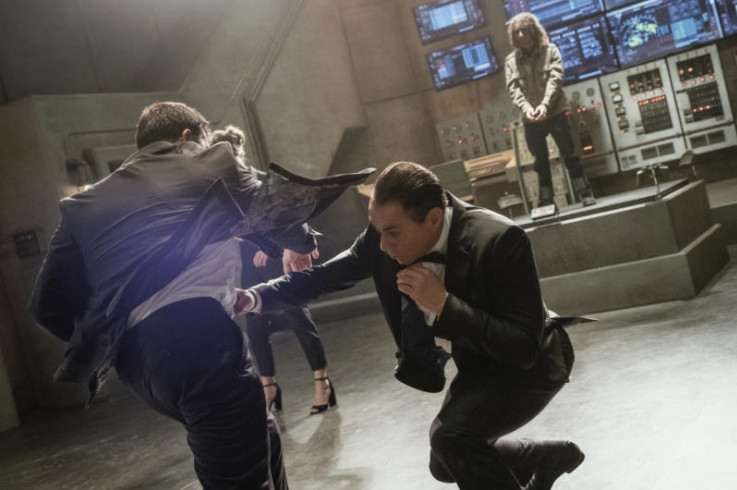
Inventive, original and fun, with all the cinematic qualities of a big screen action film, JEAN-CLAUDE VAN JOHNSON stars Jean-Claude Van Damme as martial arts and film superstar Jean-Claude Van Damme, but who also operates as “Jean-Claude Van Johnson”, the most dangerous undercover operative in the world. Sadly, after suffering a broken heart, Van Damme and Van Johnson both disappeared into retirement some years ago, now living a plasticene life of semi-seclusion in the hills of Hollywood. But a chance encounter with Van Damme’s beloved Vanessa gives him the idea he can win her back IF he’s back in the game, both games. Going back before the camera as Huckleberry Finn in a reimagination of “Tom Sawyer”, and back undercover, be he Jean-Claude Van Johnson or Jean-Claude Van Damme, he’s facing the greatest enemies he has ever faced as danger comes calling in both of his worlds.
Joining JCVD are Kat Foster as Vanessa, Moises Aries as Jeremiah and Phylicia Rashad as Jane, agent and undercover boss to JCVD.
In this exclusive interview with PETER ATENCIO, we go deep “undercover” and talk about the mechanics of JEAN-CLAUDE VAN JOHNSON from casting to cinematography to editing to construct to tone to sound to score and more!
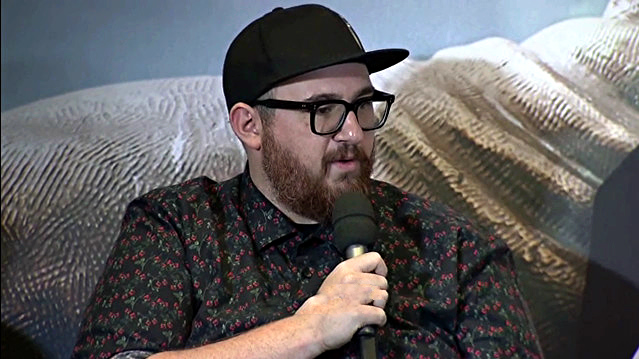
Peter, JEAN-CLAUDE VAN JOHNSON is so original, so inventive. Absolutely fabulous fun! And to see Jean-Claude Van Damme, who has a great sense of humor, to see him step out in this way, makes this the perfect vehicle and showcase for him.
Yeah, totally! And he does, he does have a very good sense of humor.
But more importantly, for my money, what you have brought directing each of these episodes and working with your incredible DP, Jas Shelton, is what sets the series apart. Dave Callaham’s story and script with the series throughline are elevated because this is so highly polished. Your action sequences are absolutely amazing. I don’t know how you did it with what I’m sure was a limited budget, but it has a blockbuster, a big tentpole film feel to it.
Wow, well, thank you! As for Jas, I don’t want to work with anyone else, because he is so talented and so good at what he does. We worked very, very hard on the action, and I had a great, great team working on that. Besides Jas we had the stunt coordinator, Casey O’Neill, who has worked in gigantic movies. Part of the fun of doing this show is because we got to shoot in L.A. and there are so many talented people who work in movies who have families here and they want stay here. We got a lot of people from the movie world to come do it because it’s a shorter schedule and it just kind of worked out really nicely. So we had a really amazing team. It was a lot of fun.
It really, really comes through on the screen.
Well, thank you, that’s good to hear.
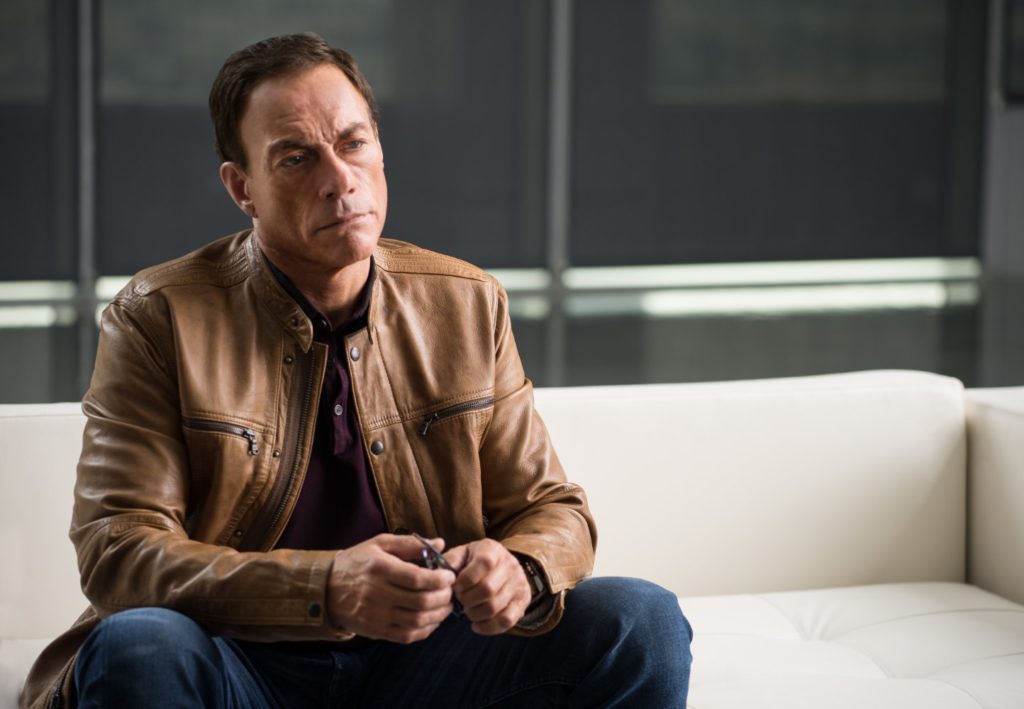
You’ve got script in hand. So how did you then go about meshing what starts out very tongue in cheek, very witty, but then as you go through the six episodes you get some real gravitas and drama and ultimately some real heart comes out. It’s a beautiful progression. So how did you as a director, how did you sit down and plot out your visual construct and the emotional tonal bandwidth hand-in-hand to achieve this?
Having that roadmap, having it on the page, was really the best thing. It was always a part of our discussion. We always wanted to do that. We wanted to show this more emotional side of JC [Jean-Claude Van Damme]. We wanted to fool people to think they were going to be watching something that’s just very funny and silly and over the top, and then kind of make it more grounded and bring it down to this more dramatic sort of interesting level. And so the idea behind the visuals and the way the series is produced is to mirror that arc. So we started it a little bit bigger, sillier, more comedic in terms of the look and the feel and sort of wanted to plant these visual seeds that would then pay off once we brought it a little bit more to this tonally different place while also making it feel cohesive. That was kind of the most important thing for me was knowing it was going to get to this place where you really have to feel for him as a character, wanting to make sure all the seeds are planted in the right way and you’re really pulled along that journey in a very organic way so they don’t really notice it. Our hope is that by the end of the last episode people feel this emotional attachment and care for him that they never would have thought that they would have after watching the first episode. So it’s really just a lot of planning, we had a very healthy amount of prep time on the show. We kind of approached this show more like a movie than a traditional television show. Being able to direct all the episodes helps with that a ton. We planned it and structured it and approached it much more like a feature film than a TV show.
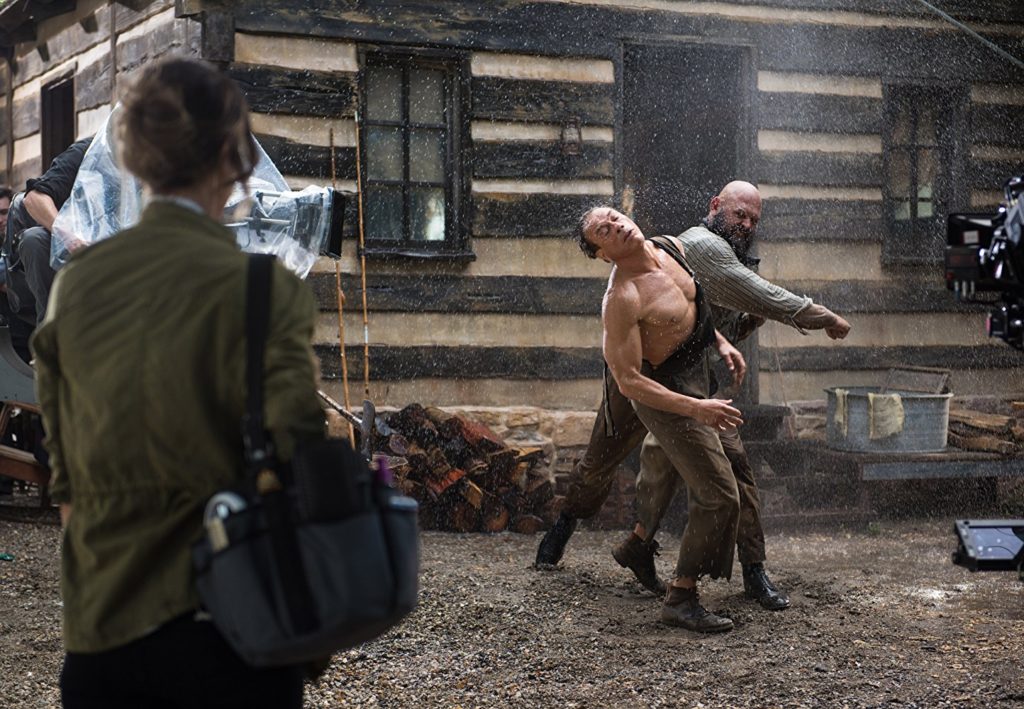
Hand-in-hand with that, your editing team has done an incredible job. Who’s handling your editing for all six episodes?
We had two editors for the series. We had an editor for the pilot who unfortunately wasn’t able to join us for the full series because there was so much time between. But we had two great editors. Our lead editor was this guy Ron Rosen who comes out of Prestige TV. He’s done movies, he’s done a little bit of everything, and was just such a great fit. So they really did an amazing job. It’s such a tonal balance on the show, you really have to have moments of complete insanity and then these very grounded character moments and they just knocked it out of the park every time.
But there’s a great synergy in which everything is cohesive from episode to episode despite those highs and lows. For you as a director, is that beneficial to you when you have the same editor working on everything so that he has that rhythm and flow, and that cadence?
It is. We didn’t have one editor who worked on everything, but that’s just part of my job is to supervise that and make sure that tonally we’re going in the right place, and for Dave [Callaham] as well. So the two of us really tag team making sure that episode to episode there is that cohesion that we’re talking about. But it’s interesting because I talk about approaching it like a feature film and then you still have to edit it like a series. So really, going into post, we were truly doing one episode at a time so it was almost like we were watching the show ourselves in a way, as we were going through editorial. There wasn’t a lot of time to go back and make adjustments based on things that had happened in later episodes. We really just had to trust that we were heading in the right direction the whole way through.
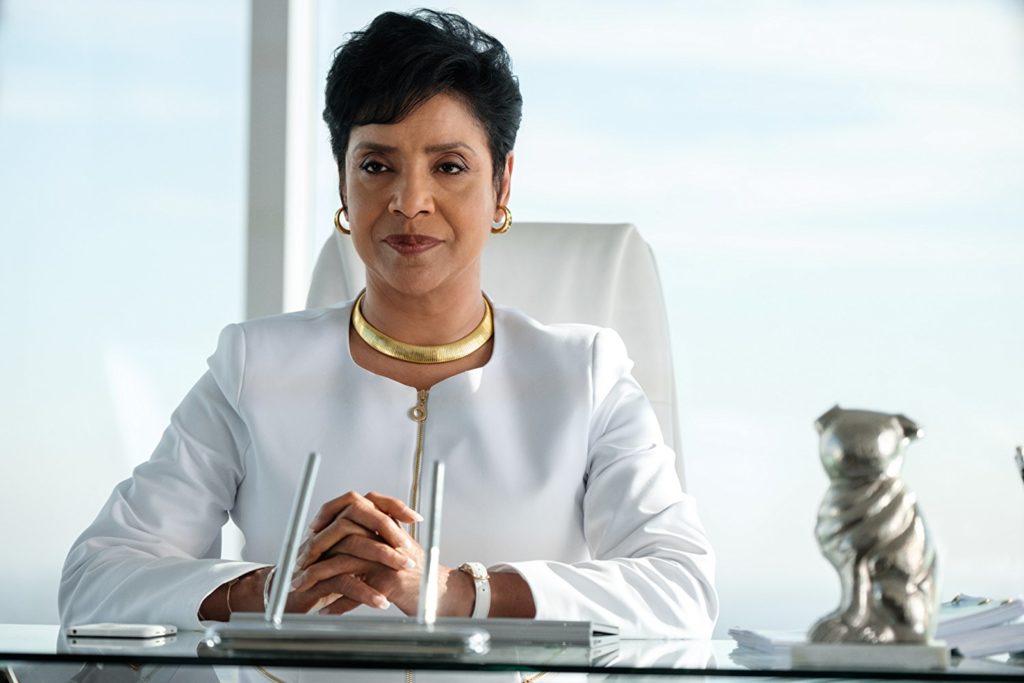
Something that I noticed that I really loved, was that all of a sudden we don’t see Phylicia’s character, Jane, in episode four. She comes back in five and then six and really knocks it out of the park. Same thing with Moises [Arias]. We don’t see him in five, but he comes back in six. So you’re wondering, and it sits there in your mind, “Where are they?” So I have to commend you and Dave on the payoff you that you give us with those characters.
Well good, good. I’m glad. It is funny, Moises in particular, I’ve been surprised at how many people really got attached to that character. He doesn’t have a ton of screen time. But even in his first audition for us, he brings this reality to that character where you just want to hold him, protect him and so for him to have the payoff he does, it was really, really rewarding.
He has this great vulnerability, and then we’re shocked.
And then this great insanity that comes out!
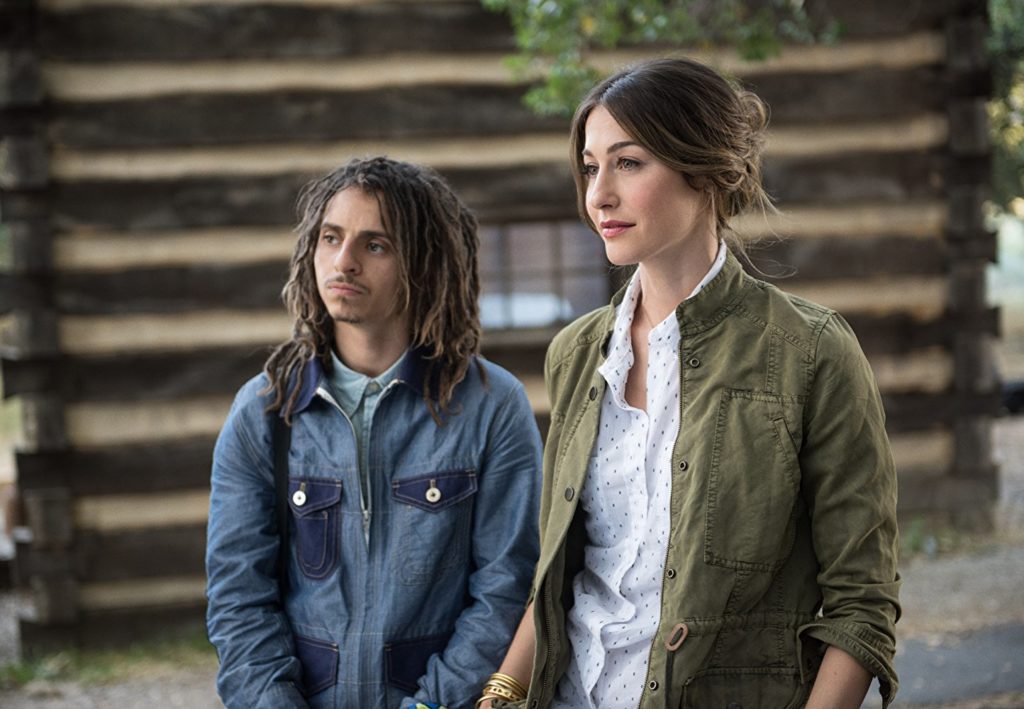
Absolutely! Something else that is so key is that with a tv series we’re always so used to the same theme music. Theme music at the beginning, theme music at the end. Here, every episode has a different end credit song. First episode, you have the theme from “Welcome Back, Kotter”. You had me laughing my ass off as soon as I heard strains of that. But then with each subsequent episode, you then pull another needle drop as your end credit that really mirrors that episode. How challenging was that to incorporate the actual music into the series? This is not just fly by night like a typical series.
Oh yeah. No, no, it’s very, very pointed. I love choosing music for stuff. Music in general is a huge part of the process for me. It’s like the second script to anything you’re working on. It’s an emotional through line. So having that end credit song – really compartmentalize all of the things that happened in that episode into a song – it’s definitely very challenging. I spent a lot of time listening to a lot of music for each episode trying to figure out what just feels right, what hits you when it comes out. You go to black and you’re like, “Oh, man, this song is great.” Actually, the biggest challenge after picking those was clearing those songs because some of those songs are very obscure. We have a Serge Gainsbourg and Brigitte Bardot song that was very, very difficult to clear. So we have a great music licensing team, our music supervisor Maggie Phillips, but they had a very difficult task with clearing obscure French music and things like that, and they came through every time. They got everything we needed.
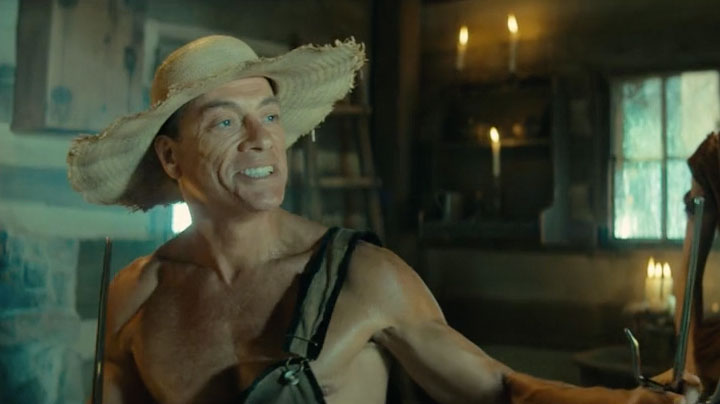
I was going to ask you about that because I know how difficult the licensing and the clearance is. And how costly it is.
It can be costly for sure. Yeah, that was part of the benefit of picking slightly more obscure stuff, was that sometimes you get a little bit of a deal. Sometimes you don’t. There were a couple of instances where it came down to like the day of the sound mix where we were like, “Please, please.” We had a backup ready, but nobody ever wants to use a backup but we got every song we wanted, which was great.
And your sound design is so well executed here. You don’t sacrifice. We’re hearing the individual gunshots, we’re hearing the knives, the different styles of knives. The sound is different as they go through the air. The minutia, the attention to detail that you have here is amazing.
I am obsessive about sound. Part of the benefit of doing this with Scott Free and Amazon was they really understood the importance of that. They understood that that can elevate the experience both as just a viewer and in terms of making it stand out a little bit from what else is out there. So we really were given a healthy amount of time with that because I think the most important thing with sound design is time. You have to listen to it in the room. You have to find the right sound. If it’s not right, you have to go back to the drawing board, find new stuff. And we really had the right resources and a great sound team. We did all the sound at Technicolor on the Paramount lot. Our mixers and our sound designers were top-notch and really, really did a good job.
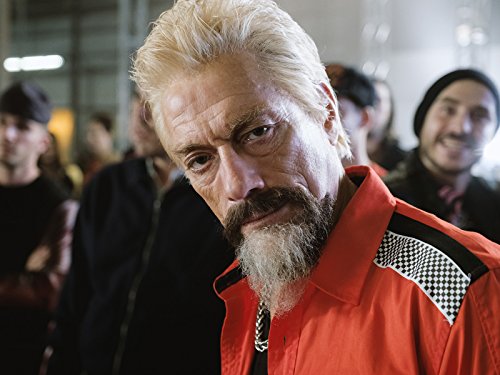
And then the blend with sound and your underlying scoring through it, very important.
Yeah. That was Joe Trapanese, an unbelievable composer. He was someone who I’ve wanted to work with for a long time, and especially for this. It just felt so right for what he does so well. But I always was kind of like, “Well, he’s a big movie guy, there’s no way he’s gonna want to do this,” and the head of Amazon music said, “I talked to Joe, he would really be interested in this.” And we met and just hit it off. His music adds so much to the whole show just in terms of the emotion he brings up but also the scope. His music, it’s just movie quality music and it’s really, really beautiful.
Very much so. But also very keenly, what you and Joe have done here as I’m sure you realize, so often the music can overpower and lead the audience as opposed to following as the undercurrent to the dialogue and what’s happening. Your music here doesn’t lead.
That’s very true. It goes back to the storytelling for me. I always like the music to add to the storytelling, to influence the storytelling, but not do the storytelling. So it’s definitely a delicate balance. There’s plenty of tracks where you could just play Joe’s music and have no dialogue or sound effects and it would totally work. When you start with that as a base, everything else you add is going to be just icing.
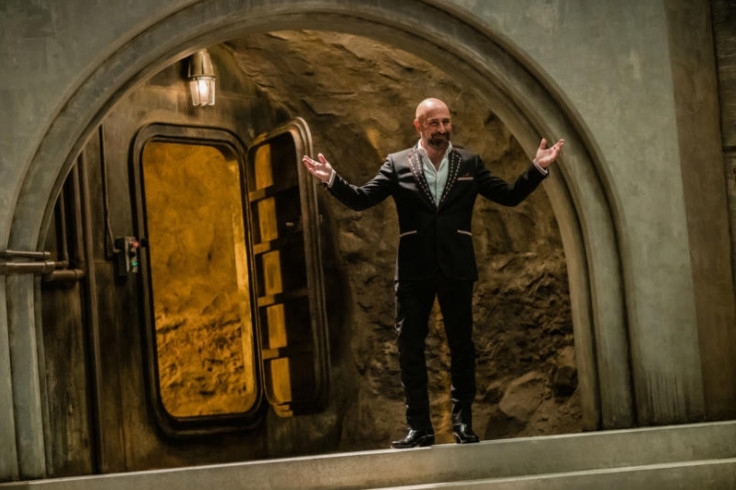
I would be remiss not to ask you about the amazing casts that you have. You’ve got JC to start with, but then you bring in Carlo Rota, who is amazing. You’ve got Richard Schiff in there, who shows up in two episodes. You’ve got Moises [Arias], and of course, you get Phylicia Rashad who is playing so far against type here. With this performance, Clair Huxtable is long gone. Clair has left the building!
Yeah. Phylicia had so much fun. I could just tell. Every time she was on set she was just enjoying herself so much. I think for her to do the type of work that she does and the plays that she’s in, she’s an unbelievable actress, so you know dramatically she’s going to be fine. But to come in and then she can chew scenery with the best of them and throw her weight around and be this badass that I knew she had inside of her the whole time. She’s remarkable in the role. And really, you couldn’t have pulled off what she pulled off with anybody.
What I love about Phylicia is that I know how selective she is with the parts that she’ll take. On “Empire”, she’s got superb writing; a really meaty role there. And over the years, even going back to “Murder, She Wrote”, a double episode there, and “Touched by an Angel”, things like that, she gravitates to roles because of writing. When I saw she was involved in this, I knew immediately there’s quality here somewhere, even without seeing a single frame. She would not be here if there was not quality.
She definitely elevates whatever she comes on board with and when we initially thought of her for the character, we were like, “Well, she would never say yes to this.” And she read the script and she had very thoughtful things to say about the script. She wanted to talk to Dave and I and her only comment was, “Maybe my character doesn’t have to swear quite so much.” And we were like, “No, it’s important that Jane swears.” And she said, “Great, then I’m ready to fuckin’ swear.” She was on board, so, yeah, it was great. She was the best. I can’t say enough nice things about her.
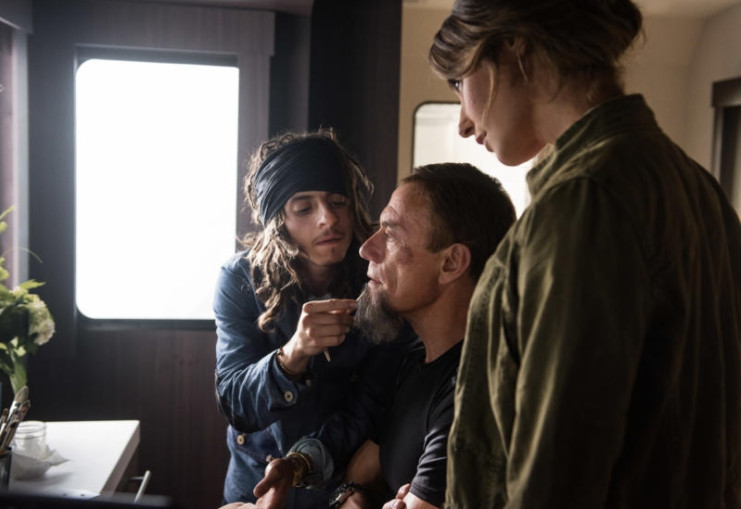
How challenging was it to cast the role of Vanessa because you have to get somebody who is able to go “mano-y-mano with JC on a physical level, a comedic level. That could not have been an easy hunt for you.
It was not. It was not. We met with a lot of actresses. Part of the challenge of this show was that at the point where we were casting these roles, you just have a script. And people hear from their agents, “Oh it’s a comedy, it’s Jean-Claude Van Damme” and they think it’s going to be tonally something very different than what it ended up being. So they think it’s going to be broad. A lot of people came in thinking like, “Oh, it’s a spoof, right?” We’re like, “Nope, nope it’s not a spoof, this is supposed to be its own thing.” So finding someone who could get the tone right, that was challenging in and of itself. And then with Vanessa the character, she really straddles this line because she has to angry with JC that whole first episode. I think for any character, but particularly, I think, for women, it’s challenging to play a character who’s supposed to be kind of angry and even a little bit mean towards the main character that the audience is supposed to feel sympathy for. I think that it’s just difficult to get that right without it being off-putting to audiences. I think sometimes you watch a performance and people recoil from that. So to find the warmth and the humanity in all the things that really Vanessa needs – you need to understand why she’s angry with him and see what the appeal is, what the attraction is, why this movie star would be coming out of retirement to pursue her. It was a tough balancing act and from the first time Kat [Foster] came in and taped an audition, Dave and I watched it and it was just like, “Okay, we found Vanessa.” That was it, she just nailed it as soon as she came in. She really breathed a life and a sensitivity and a vulnerability and a strength into that character that wasn’t always on the page. That was something that, as the story evolved, it becomes a little bit more Vanessa focused and a lot of that has to do with Kat’s ability to make her this very fleshed out and very strong character.
I’ve got to ask you, Peter, what did you through this process of the six episodes series through developing it, through working with Dave, working with JC, what did you learn about yourself as a director that you can now take forward into future projects? Hopefully, a second season of this!
That’s a good, very challenging question. This was my first project after doing “‘Keanu”, and “Keanu” was a very difficult process. It taught me a lot of lessons the hard way. It made me realize a lot of things that I needed to get better at as a director. And so this show was kind of the first opportunity I had to put a lot of those lessons into use. And while I still learned a lot of lessons the hard way on this show, because I think you just have to do that every time or you’re not doing it right, this show gave me a lot of confidence to tackle more dramatic stuff. This was my first time doing something that veers into true drama. There’s still moments of levity, there’s still comedy throughout, but there’s also some character things that … it got very emotional on set sometimes getting into some of this stuff. It made me really hungry to do more of that. So that’s kind of what I’m walking away from the experience, hoping that I get to do more of that.
JEAN-CLAUDE VAN JOHNSON is available on December 15, streaming exclusively on Amazon Prime Video.
By debbie elias, interview 11/30/2017

